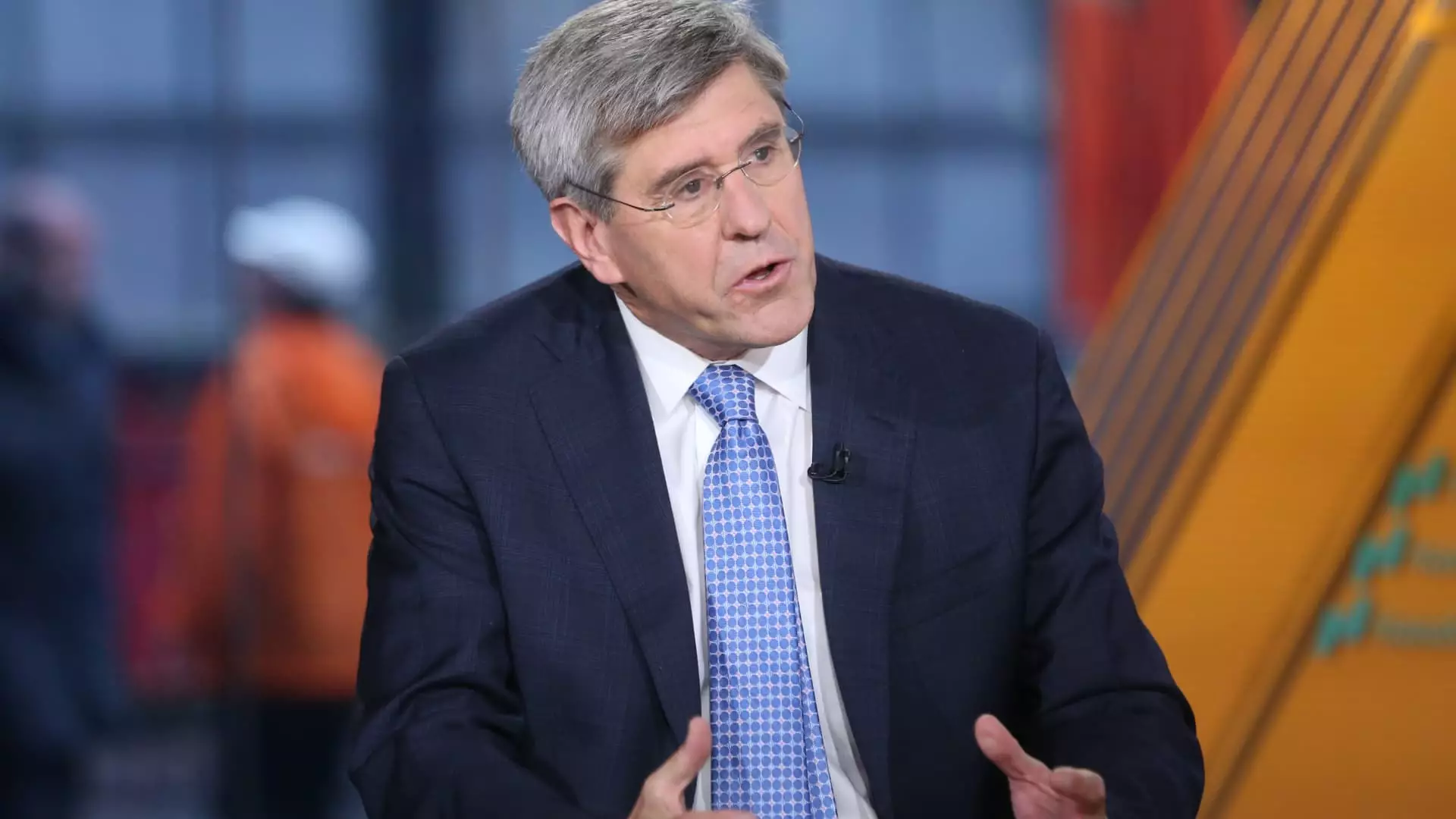The global economic landscape is constantly shifting, and at its core, the trade relationship between the United States and China has become a focal point of tension and negotiation. Former economic advisor Stephen Moore recently weighed in on this dynamic at a Delivering Alpha event in Dubai, outlining the profound implications of these tariff-based strategies deployed under the Trump administration.
Understanding the U.S. Approach to Tariffs
Moore’s insights reflect a crucial understanding of how tariffs are utilized as tools within the broader strategy of economic competition. Unlike China, which he perceives as having a lower threshold for enduring economic pain, the U.S. is willing to adopt a more aggressive stance. Moore characterizes this approach not merely as a punitive measure but rather as a calculated tactic aimed at gaining leverage on the international stage. This aligns with Trump’s broader philosophy of using economic policies as negotiation instruments, rather than simply as punitive actions against economic adversaries.
By categorizing the ongoing trade disputes as “trade skirmishes” rather than outright wars, Moore indicates a belief that while the disputes are serious, they can still evolve without spiraling into catastrophic economic fallout. The distinction he makes is critical: a skirmish suggests smaller-scale conflicts that can potentially be resolved through negotiation and compromise, rather than the devastating ramifications of a full-blown trade war.
Moore’s assertion that “China can’t win” amidst escalating tariffs due to its already struggling economy raises essential questions about the sustainability of their response strategy. While Beijing might attempt to retaliate by imposing its own tariffs on U.S. exports, the long-term implications for China’s economy are dire. The logic here hinges on the idea that China’s economic framework does not allow it the same leeway as the U.S. to absorb the shocks of retaliatory measures—pointing to an inherent imbalance in this trade conflict.
Tariffs implemented by the U.S. may succeed in compelling China to alter its trade practices, given that China has been historically reliant on exports to fuel its growth. As Moore noted, the burden of these tariffs will weigh heavily on China, which could destabilize its economy further. Thus, the conversation surrounding tariffs transcends trade—it’s a reflection of national strategies and the robustness of economic structures.
Moore also launched into a critical assessment of Europe’s position amid these tensions, suggesting that European nations must navigate a precarious path, choosing either to side with the U.S. or China. This dilemma underscores the broader implications of the U.S.-China conflict not only regionally but globally. He insinuates that the stakes have never been higher; it’s a question not merely of economic preference but of geopolitical alignment that could influence global stability.
This brings to light the intricacies of international diplomacy, where choices regarding tariffs and trade policies are not just bilateral matters, but factors that can induce wide-spanning geopolitical ramifications. With existing tensions between the European Union and China surrounding tariffs on electric vehicles, the potential for a more profound schism could signal a shift in global alliances.
Dangers of Escalation
While Moore supports Trump’s efforts to tackle issues like the import of fentanyl, he recognizes the precarious nature of escalating trade disputes. Economists like Paul Ashworth have warned that Trump’s trade measures could provoke a series of damaging retaliatory actions, leading to an extensive rift in global trade systems. This raises critical questions about the sustainability of such a strategy and the extent to which it can achieve its intended outcomes without inflicting significant economic harm on all involved parties.
The U.S.-China trade tensions encapsulate more than mere economic disagreements; they represent a complex interplay of national interests, economic strategies, and global alliances. As the situation evolves, it will be vital to monitor how these tariffs influence not only the economies of the U.S. and China but also their relationships with allies and adversaries around the world. The trajectory of these disputes may well determine the future of global trade relations and economic stability for years to come.

